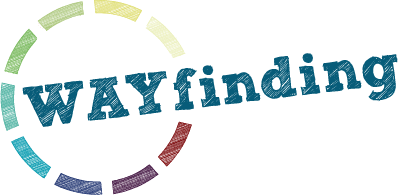| ANNE WILLIAMSON |
When I hear the word greed, my body recoils. Shame is at least part of the reason. I may not be someone who perpetually wants more but I have early, hard-to-shake memories of feeling ashamed of the much more I already had. I recoil too because greed seems to be directly and indirectly responsible for so much pain: the Earth’s; the poor’s; women’s; even, when we begin to think spiritually, the pain of greed’s perpetuators.
Nick Hanauer, one of our country’s .01% ers, agrees… in a way. His concern for he and his fellow plutocrats is not spiritual; it’s practical. In his TED Talk, Hanauer explains why the inevitable consequences of greed in the form of historically high income inequality will be an unstable democracy and less profitable businesses – realities bad for all. In Hanauer's view, this alone should compel us to end gross inequality; he doesn’t mind the moral argument; he simply thinks it unnecessary.
I don’t agree. I like Hanauer’s ideas - he calls for both the end of trickle-down economics and the start of a federal $15 minimum wage; I think these are great places to start. Greed-as-bad-for-business, though, will not carry us far enough. We need the language of morality, justice, compassion, and yes, sin, for that.
When we name gross income inequality – and the greed from which it stems – immoral or sin, we begin to ask bigger questions, confront deeper problems. We see that greed doesn’t just erode our long-term bottom lines, it literally erodes the Earth that sustains us. It also props up institutionalized racism, sexism, ageism and on. Our reluctance to name greed as sin means we’ve become uncomfortable with words like “sacrifice” and “limits”; words that, in truth, are necessary in thriving communities and the societies built upon them. It’s personal too. The language of sin means we wonder about real wholeness: all this stuff, all these activities, do they bring us peace, lasting joy?
Yes, greed is bad for business. More importantly, it's bad for the world and its people, our people, us; it's bad for our bodies and minds, our communities and societies, and it's bad for our spirits. Making the moral argument, naming greed as sin, helps us recognize this - a process that is anything but unnecessary. For, without recognition there is no oppositional movement, no work; and without the work, there is no recovery or reconciliation; there is no hope for restoration.
We'll be exploring these ideas and more this week in WAYfinding. If you can't join us in groups, listen to Hanauer's interview on the TED Radio Hour, as well as his full TED Talk. Both available here. In conversation with this blog post, what do you think? Share with a friend, partner, family member. What do they? Then, take a moment to listen for what's stirring in you. Perhaps you're feeling pulled to listen more deeply, learn something new or love better. Set your intention and go about the work of being or doing.

